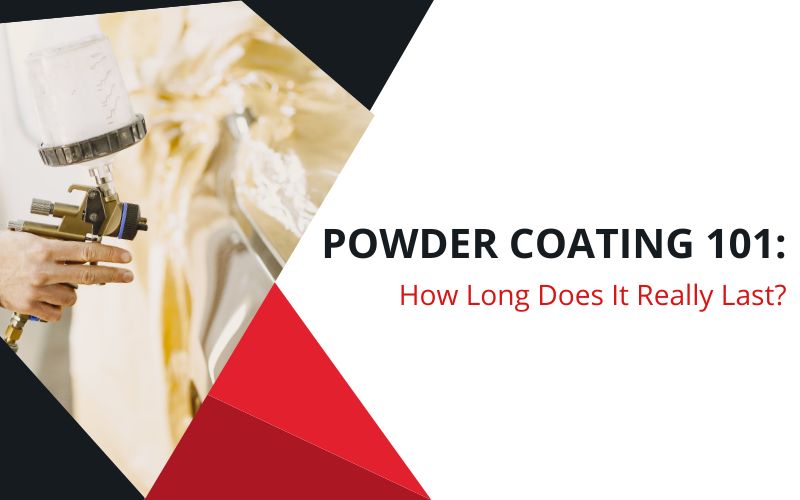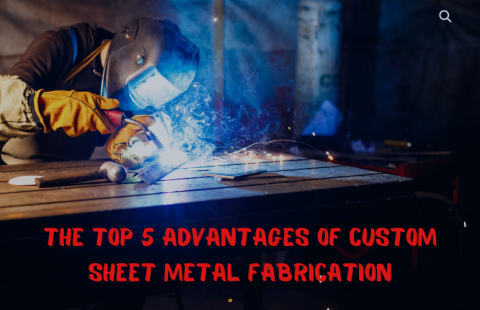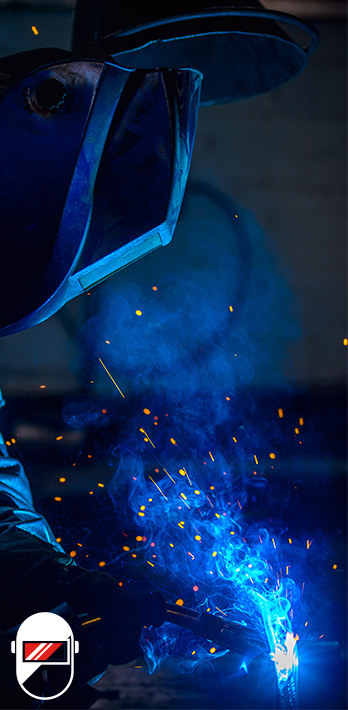
Powder Coating 101: How Long Does It Really Last?
Powder coating has been used as the coating of choice in many industries because it’s extremely durable and protects whatever material it’s applied to. But how long does powder coating last, really? And what makes powder coating so durable?
Let’s find out! In this article, we will discuss the basics of powder coating, along with any tips you might need to keep your powder coated products protected from damage and looking great for as long as possible.
What is powder coating?
Many people know that a powder coating is a great option because it will not chip or peel like regular paint. However, you may wonder how long powder coating lasts. Powder coatings can last up to forty years!
This will depend on the environment, preparation and the type of finish you choose. Some of the finishes are glossier than others and can wear off faster due to the nature of them being more susceptible to wear and tear. If you want your finish to last as long as possible, we recommend choosing a flat or semi-gloss finish.
How to maximize the lifespan of your powder coated finish
Powder coating is a great way to extend the life of your product. Below are some key things to know that can maximize the lifespan of your powder coated finish.
If you’re using your product outside, you might have to re-powder coat often than if you’re using it indoors. Exposing an outdoor item to water, dirt and other environmental factors can wear away its powder coated finish faster than indoor products. So, keep that in mind while taking care of your powder coated product.
Some colors fade quicker than others. Colors like red and yellow can stain in UV light, while bright white is prone to oxidation and rusting over time.
Different types of powder coating materials
There are many different powder coating materials on the market, so choosing a material that is best for you can be difficult. With that in mind, there are two main types of powder coating materials—polyester and epoxy.
Each one is a unique material with its own characteristics and benefits, so choosing one over another depends largely on what you’re using it for. Polyester has excellent wear resistance, allowing for high durability and long-lasting results. This type of coating also cures rapidly, making it an ideal choice for DIY projects.
While polyester powder coatings generally offer great performance at an affordable price point, they can be harder to obtain as they aren’t as readily available as epoxy powders are. On the other hand, epoxy powders usually have poorer wear resistance compared to polyesters but tend to cost less overall.
Polyester and epoxy powders each have their benefits, so choosing a material depends on your specific application needs. For example, if you’re coating something that will be exposed to harsh outdoor conditions, polyester may be your best bet since it has excellent abrasion resistance.
Answers to frequently asked questions about powder coating
Q1. Is powder coating durable enough for outdoor use?
Ans. Powder coated metal is the perfect choice for outdoor use because of its unparalleled durability and resistance to rust and corrosion, even in harsh climates. This makes it great for a variety of uses such as benches, handrails, gates and garden furniture.
Q2. How long does powder coating last?
Ans. With proper care, a properly applied powder coat can last up to 40 years without any noticeable difference in appearance or performance!
Q3. Is powder coating more expensive than other types of paint?
- Powder coating requires a complex set of processes and materials, including application on an electrically-heated frame to ensure consistent heat and thus a perfect finish every time.
However, there are other factors involved in pricing as well, such as your location and weather conditions. Because powder coatings require so much additional time to complete from start to finish, you should expect to pay a premium for a high-quality coating job.
Q4. When should I re-coat an object?
- Powder coatings that are subject to harsh weather conditions or lots of dirt and debris will naturally have a shorter life span than those that don’t.
However, there’s no exact number that indicates when it should be replaced—for most pieces, it comes down to when you notice imperfections in your paint job. An expert opinion is usually required for determining whether or not re-coating is necessary.



